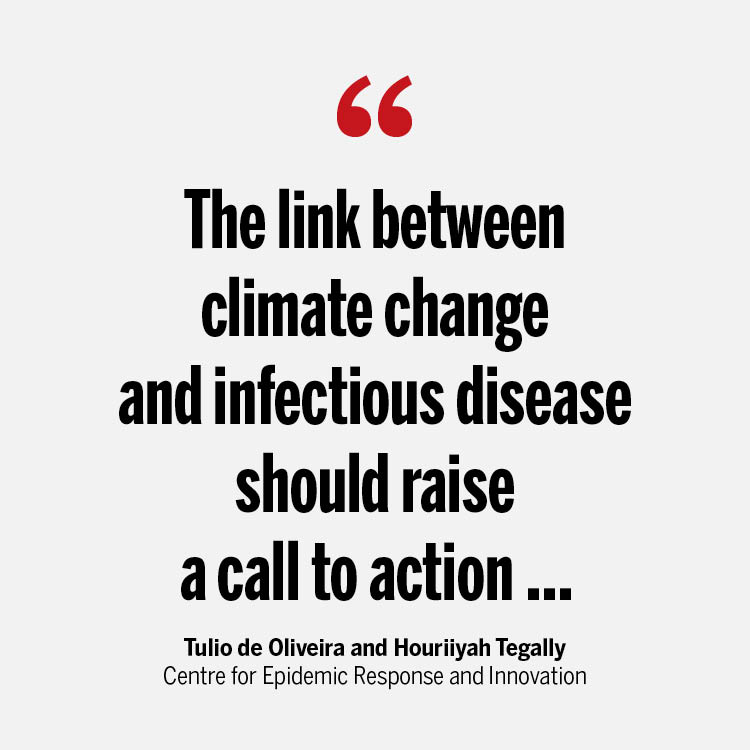This is the time for renewed energies to study the impacts of climate change on health and disease and to prevent further harm from unprecedented climate impacts. The emphasis needs to be on creating greater health equity among populations that are most vulnerable and least prepared.
While countries in the global south contribute less than 10 percent of greenhouse gas emissions, they are likely to suffer the largest health impacts from climate change because of proximity to hotspots of disease emergence (biodiversity), an already high burden of infectious diseases in these countries, geographical association with the tropics where temperatures are high year-round, and critically, because of its large vulnerable populations, which typically have inadequate access to functional health systems.
Not only are developing countries more at risk of climate disasters and harm, but they also have less adaptive capacity and preparedness to respond to these threats, making developing countries highly vulnerable (low preparedness vs climate risk). The response to climate change should be used as an opportunity to build capacity to protect and support health, especially in underserved and underrepresented communities.
CALL FOR ACTION:
- Urgency of addressing the nexus between climate change and infectious diseases cannot be overstated.
- Evidence is irrefutable, and the consequences are profound.
- Imperative that we acknowledge this reality and take swift, decisive action to mitigate the impending public health crisis.
- Sustainable funding directed at the intersection of climate change and epidemic prevention is required.

Read the Editorial – Will climate change amplify epidemics and give rise to pandemics? de Oliveira & Tegally, Science 2023
Back to COP28 CLIMADE Report
